
Leonard G. Gomella, MD, FACS, discusses new clinical trials that are evaluating novel targeted therapy options for those with prostate cancer.

Your AI-Trained Oncology Knowledge Connection!


Leonard G. Gomella, MD, FACS, discusses new clinical trials that are evaluating novel targeted therapy options for those with prostate cancer.

An expert from Dana-Farber Cancer Institute indicates that urologists should refer patients with prostate cancer who present with multiple high-risk factors at surgery to a radiation and medical oncologist.

Fifteen-year results of the ProtecT prostate cancer trial may support the findings of the study’s 10-year follow-up data, according to an expert from Dana-Farber Cancer Institute.

Increasing age, higher Gleason scores, and higher pathologic stages are predictors of mortality in patients with prostate cancer, according to an expert from Dana-Farber Cancer Institute.

Clinical trials highlight benefits, including radiographic progression-free survival following treatment with radioligand 177Lu-PSMA-617 in pretreated patients with metastatic castration-resistant prostate cancer.

Early data from ongoing clinical trials suggest the potential safety and efficacy of novel radium-223 combinations as treatment for metastatic castration-resistant prostate cancer.

Current clinical trials look to assess 177Lu-PSMA-617 in combination with other therapies including androgen deprivation therapy and docetaxel.

An expert from Dana-Farber Cancer Institute indicates that patients with prostate cancer who have 1 risk factor should undergo salvage radiotherapy following radical prostatectomy before their prostate-specific antigen level rises above 0.25 ng/ml.

An expert from Weill Cornell Medicine highlights key clinical data indicating the benefits of radium-223 in the treatment of patients with metastatic castration-resistant prostate cancer.

The risk of radionuclide exposure to the public reflects one reason urologists need to collaborate with radiation oncologists when administering radiopharmaceuticals to patients with prostate cancer.

Switching out beta emitters for alpha emitters, including radium-223, is one way to improve radiopharmaceutical treatment of prostate cancer, according to an expert from Weill Cornell Medicine.

Anthony D’Amico, MD, PhD, reviewed current practices and unanswered questions surrounding radiotherapy in the realm of prostate cancer.

Matthew Dallos, MD, discusses current challenges in the treatment of castration-resistant prostate cancer and the potential of antibody-drug conjugates in this disease space.
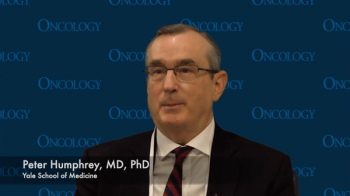
At the 15th Annual Interdisciplinary Prostate Cancer Congress® and Other Genitourinary Malignancies, Peter Humphrey, MD, PhD, spoke about the role of pathology in renal cell carcinoma.
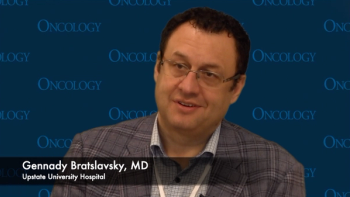
Gennady Bratslavsky, MD, at the 15th Annual Interdisciplinary Prostate Cancer Congress® and Other Genitourinary Malignancies, spoke about which research in renal cell carcinoma has the greatest potential for clinical impact.
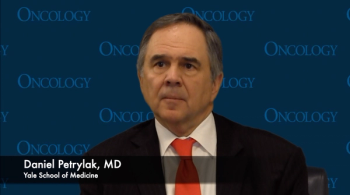
At the 15th Annual Interdisciplinary Prostate Cancer Congress® and Other Genitourinary Malignancies, Daniel P. Petrylak, MD, reflects upon mentorship during his training to become an oncologist.

At the 15th Annual Interdisciplinary Prostate Cancer Congress® and Other Genitourinary Malignancies, Peter Humphrey, MD, PhD, spoke about how enrollment for specific trials in renal cell carcinoma may incorporate a patient’s tumor histology.

At the 15th Annual Interdisciplinary Prostate Cancer Congress® and Other Genitourinary Malignancies, Daniel P. Petrylak, MD, spoke about ongoing trials may hold promise for the treatment of patients with bladder cancer.

Susan F. Slovin, MD, PhD, spoke about how new approaches can support clinical practice guidelines and physician intuition in treating patients with prostate cancer.
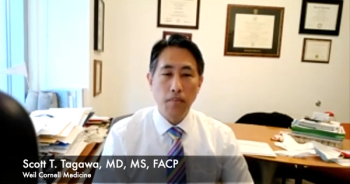
Scott T. Tagawa, MD, spoke about potential approvals in the coming year for prostate cancer.

Gennady Bratslavsky, MD, spoke about the role of adjuvant therapy in renal cell carcinoma at the 15th Annual Interdisciplinary Prostate Cancer Congress® and Other Genitourinary Malignancies.

At the 15th Annual Interdisciplinary Prostate Cancer Congress® and Other Genitourinary Malignancies, Peter Humphrey, MD, PhD, spoke about how the conference catered to the multidisciplinary audience, and what he learned from that.

Gennady Bratslavsky, MD, spoke about the evolving field of surgery for renal cell carcinoma at the 15th Annual Interdisciplinary Prostate Cancer Congress® and Other Genitourinary Malignancies.

Gennady Bratslavsky, MD, spoke about the evolution for treatments in renal cell carcinoma and how surgery may play a role.

At the recent 15th Annual Interdisciplinary Prostate Cancer Congress® and Other Genitourinary Malignancies, Jean Hoffman-Censits, MD, reviews advances in the use of systemic therapy to aid surgical management of bladder cancer.

At a recent conference, Robert Dreicer, MD, MS, MACP, FASCO, offered his advice regarding the use of androgen deprivation therapy in patients with metastatic castration-sensitive prostate cancer.
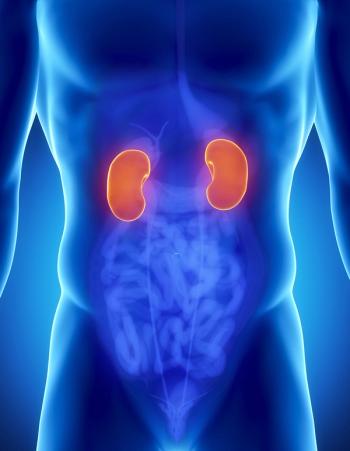
Gennady Bratslavsky, MD, discusses the ever-changing field of treatment options for renal cell carcinoma at the 15th Annual Interdisciplinary Prostate Cancer Congress® and Other Genitourinary Malignancies, hosted by Physicians’ Education Resource®, LLC.
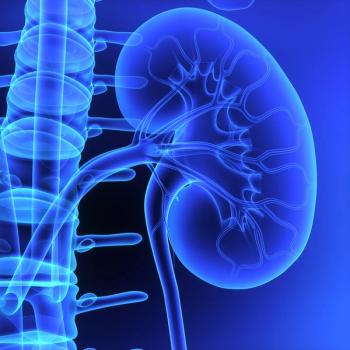
Primo Nery Lara, Jr., MD, talks treatment of metastatic renal cell carcinoma in the first-line setting at the 15th Annual Interdisciplinary Prostate Cancer Congress® and Other Genitourinary Malignancies, hosted by Physicians’ Education Resource®, LLC.

At the 15th Annual Interdisciplinary Prostate Cancer Congress® and Other Genitourinary Malignancies, Daniel P. Petrylak, MD, spoke about how immunotherapy has influenced treatment for patients with bladder cancer.

Daniel P. Petrylak, MD, reviews the current systemic therapy treatment paradigm in metastatic urothelial carcinoma.